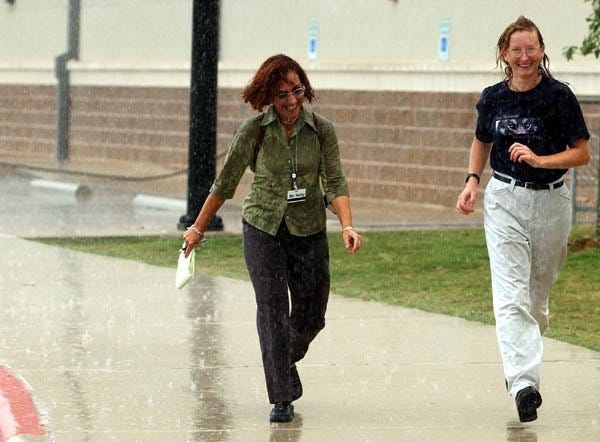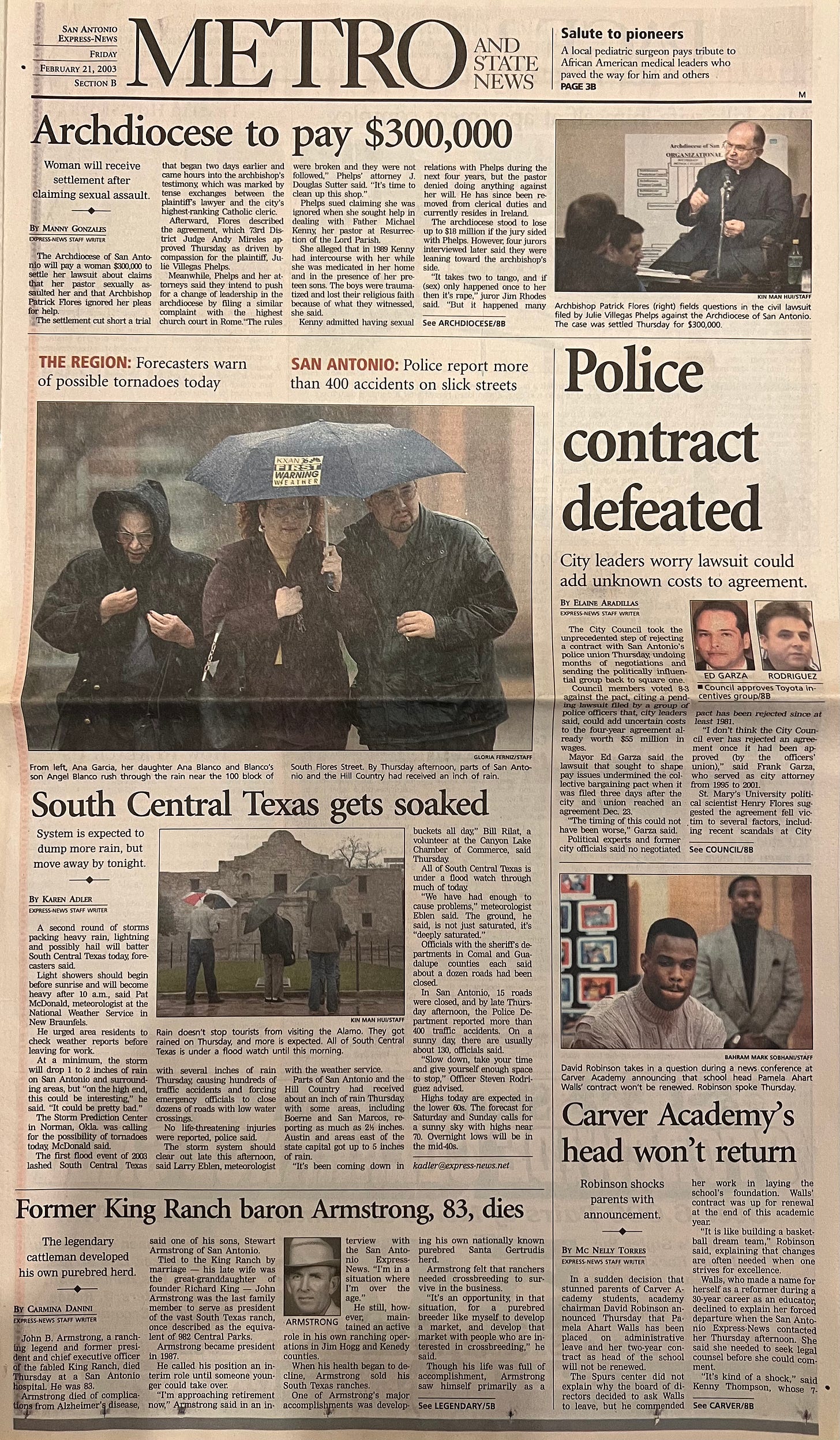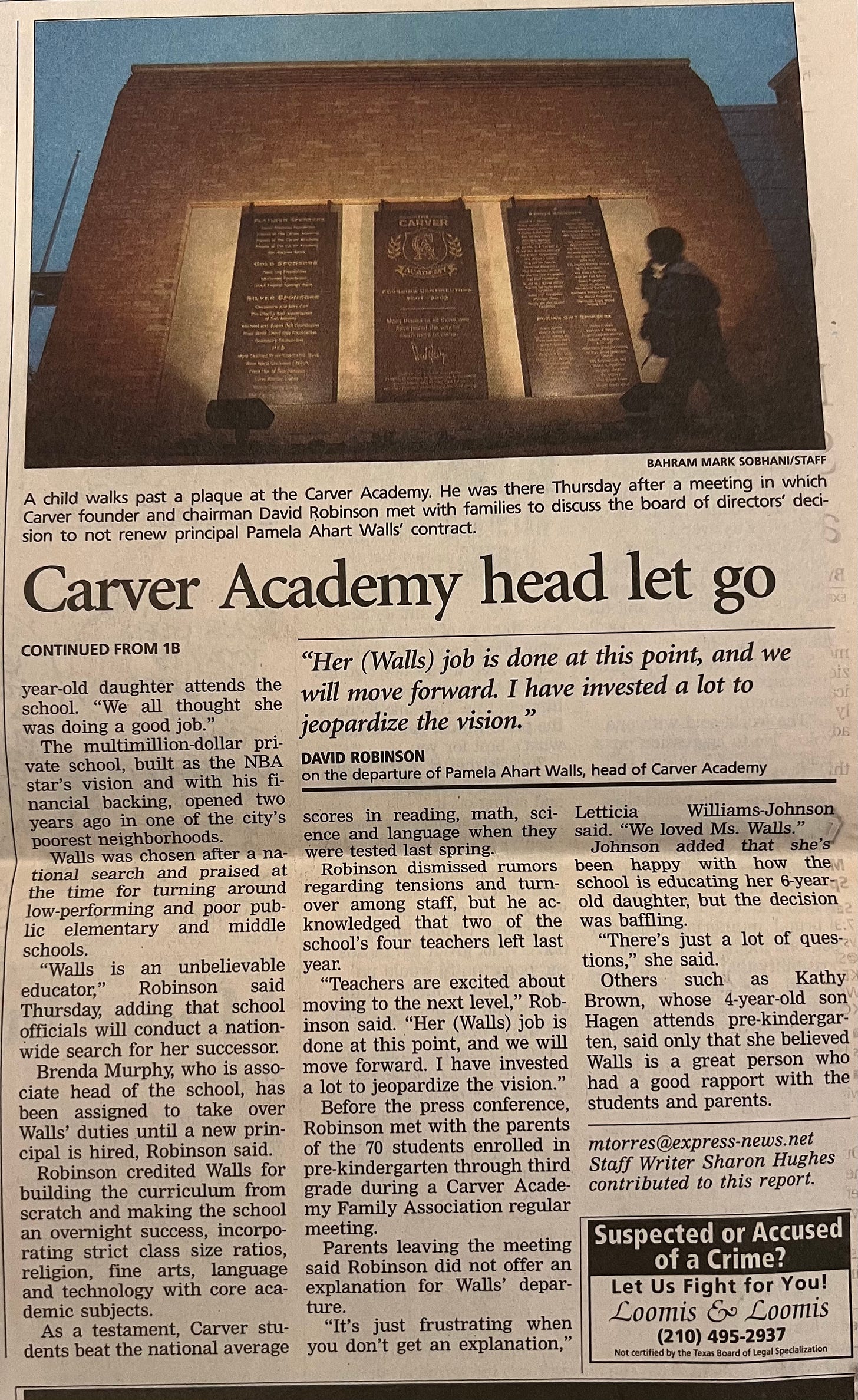No cheering in the press box, or the press conference
Journalists must behave professionally and ethically around prominent and powerful people if they want their respect.
Welcome back to Don’t Forget My Voice, a newsletter to help you navigate journalism’s chaotic and toxic maze. I’m Mc Nelly Torres, a longtime investigative journalist, editor, trainer and mentor.

When a friend told me how a reporter had interrupted a live interview with Babyface to pursue Chappell Roan on the Grammy Awards’ red carpet, I laughed.
Babyface’s fans loudly expressed their disgust in social media calling The Associated Press reporter “unprofessional” and “disrespectful” and demanding that the AP fire her.
I don’t pretend to know what type of conversations, if any, this reporter had with her supervisor when she was assigned to cover this event. Obviously, if this was her first time covering this, they should have talked to her to prevent what happened.
Entertainment journalists have dissected in detail her behavior, which you can watch here. The reporter showed her inexperience and immaturity even after she apologized.
There’s nothing wrong with being a fan; we all have interests (music, movies, sports, books, travel and art). But journalists are expected to be neutral, ethical, professional and have the proper decorum no matter what or whom we cover.
That’s not the time to act like a fan.
Crossing that line could ruin your reputation, embarrass your employer and lose your audience's trust.
When in doubt, journalists should always revise the Society of Professional Journalists’ Code of Ethics, which provides the basic tenets: seek the truth and report it, minimize harm, act independently, be accountable and transparent.
We live in an era of social media and disinformation and misinformation but the public can quickly conclude when something is not right or when a journalist’s behavior is crossing the line.
Journalist or fan?
I was an education writer for the San Antonio Express-News when my editor sent me to cover a breaking story one February afternoon in 2003. It was a press conference taking place at Carver Academy, a private school founded by David Robinson, then a basketball star playing for the National Basketball Association's San Antonio Spurs.
I’m not a sports fan and knew little about Robinson, so I looked him up in the newspaper’s archives and I researched the private school. (I didn’t cover private schools as part of my beat.)

The multimillion-dollar private school, built as Robinson’s vision and with his financial backing, opened in 2001 in one of the city’s poorest neighborhoods in San Antonio. He’d invested $9 million in the venture.
That day, Robinson, now a Basketball Hall of Famer, was expected to announce that the principal leading the school was leaving her post and would go on administrative leave.
The principal had emerged as the top contender for the job from a national search before Carver Academy opened. She’d been praised for her reputation in turning around low-performing and poor public elementary and middle schools. She created the curriculum and opened the prekindergarten to third grade school after she was hired.
So, what went wrong?
Later that afternoon, I drove to the school, a couple of blocks away from the newspaper to attend the press conference. When I got there, Robinson was sitting at the end of a large table in the conference room.
I sat at the other end of the table watching the ambiance in the room, a habit I have since my days covering the criminal justice system. Several reporters were already there occupying the seats closer to him. Photographers and videographers were hovering around Robinson’s table and in the back of the room.
Like many of these athletes, Robinson was a big guy (he stands 7-foot-1). I noticed his long legs and arms as he sat quietly observing the room. He looked like a giant expecting to be attacked by a bunch of reporters.
But that’s not what happened.
The reporters in the room did not ask questions about the principal and the events that led to her forced departure.
Instead, the reporters sitting closer to Robinson from local TV and radio stations were more preoccupied with Robinson’s latest injury at the basketball court.
I can’t even remember now whether he’d injured his leg or arm.
I wasn’t there to write about Robinson’s basketball skills or his injuries. I was there to write about the principal.
As the reporters continued to talk pleasantries, one asked Robinson for an autograph noting that one of his children was a fan.
That did it for me.

I raised my hand and as Robinson acknowledged me I said: “I’m sorry. I do not want to sound disrespectful about your injury but I’m not here to talk about that or basketball.”
I continued: “I’m here to ask questions about the principal of this school. I’m on deadline and I have a lot of questions that I need to ask.”
I was furious about how these reporters demeaned themselves and acted like groupies.
He said. “Ask away,” so I did.
Why is the principal leaving?
Did she do something wrong? What prompted this?
Has staff or anybody complained about her?
Is she leaving on her own accord or was she fired? Did she resign or was she asked to resign?
What are the next steps?
As the press conference concluded and I realized that he was not going to answer all my questions, I got up from my chair and walked toward the parking lot. It was already 6 p.m.
Deadline loomed.
I was crafting a lede on my head while scribbling on my notepad and speed walking toward my car. A radio reporter tried to stop me to chit chat and said: “Hey! You asked good questions.”
It was a compliment, but I didn’t care. I was livid that we wasted so much time.
This was not a social event.
How can the famous and powerful respect the media and answer our questions when reporters are unprofessional and act like fools? I thought.
I was embarrassed to be among them.
We move in their world of the people we cover and they allow us to be there to do our jobs, which is journalism.
But that’s their world, and not ours.
Once you blur the line and cross over, it is over.
You are no longer a journalist — you are a fan. That’s the last thing you want to be.
Follow Mc Nelly on Bluesky, Threads, LinkedIn, X, Substack Notes and be part of the community I’m building online. Drop me a note if you want to provide feedback, would like me to discuss a specific subject, collaborate or just to say hello at mcnellytorres@substack.com. Join our chat room here.
Never miss an update—every new post is sent directly to your email inbox. For a spam-free, ad-free reading experience, plus audio and community features, get the Substack app.
Tell me what you think
Be part of a community of people who share your interests. Participate in the comments section, or support this work with a subscription.





Thank you for speaking from the perspective of a local reporter👍🏼There is not nearly enough written from the point of view!